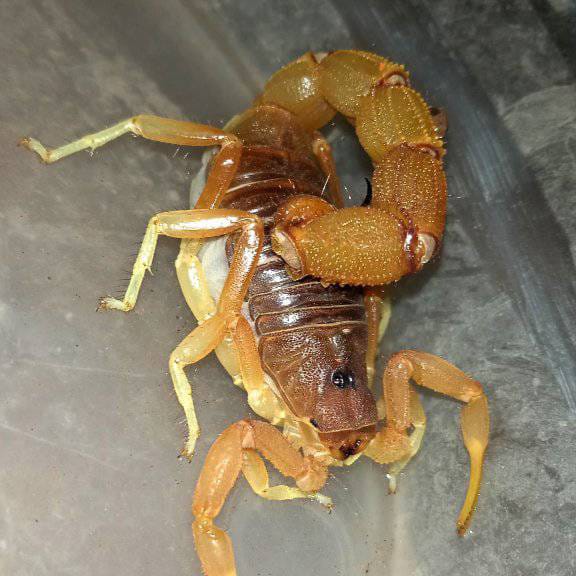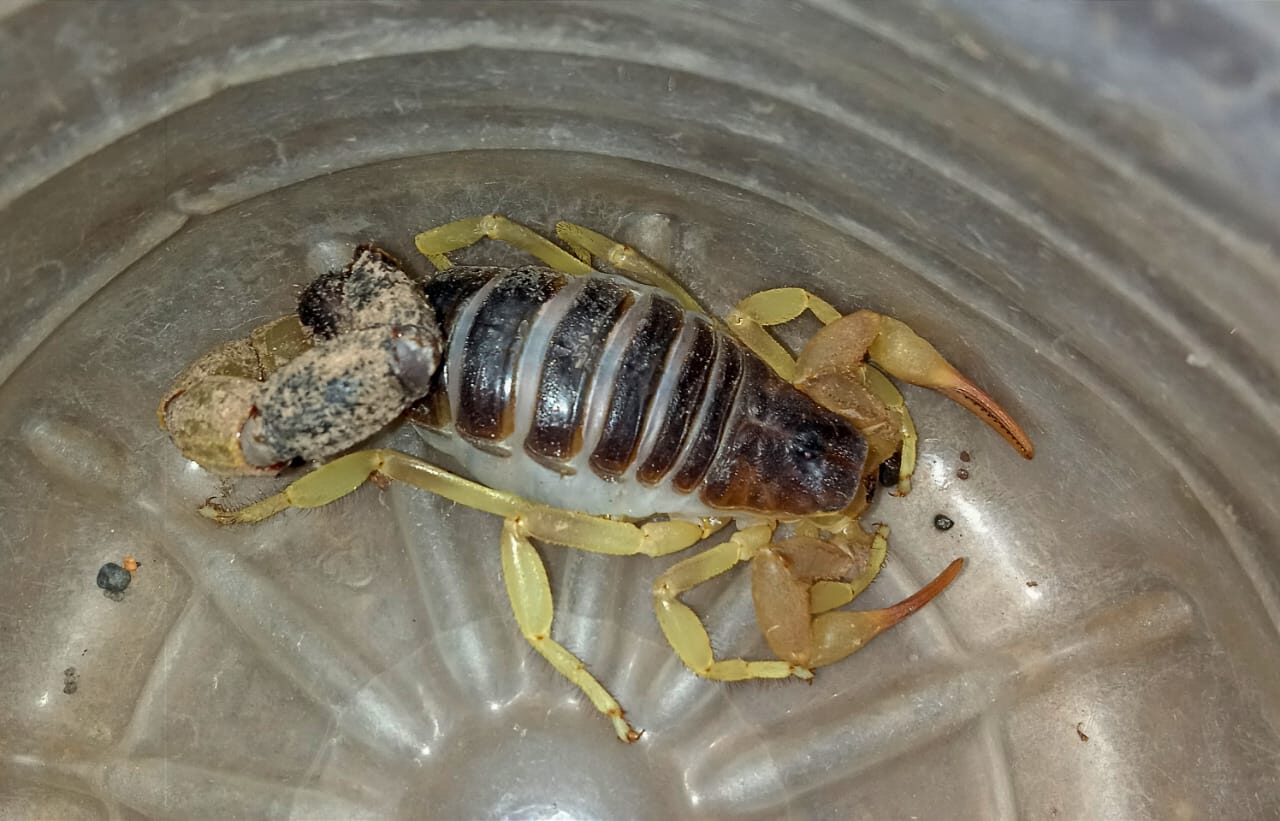By Tolossa Asrat – KANERE Volunteer Writer, January 2022
Three people, among them, a grandmother and a three-year-old baby, died from scorpion stings and snake bites reported the head of the Scorpion Project in Camp 4 of the Kakuma Refugee camp.

Kakuma, a camp in Northwestern Kenya, is home to 244,000 (October 2022 UNHCR & GOK Statistics) refugees from different neighbouring countries and also home to some of the deadliest species such as scorpions, poisonous snakes, centipedes and spiders, according to lead researcher, Godfrey
The inspiration for keeping and monitoring these creatures stemmed from nothing but keeping the “refugee community safe. Kalobeyei is safer than the 4 camps of Kakuma because the more trees, the higher the snakes, scorpions and spiders are off the ground.”
“For almost three decades, refugees have been exposed to stings and snakebites. Many have lost their loved ones, and some are left with amputated fingers, arms, and legs but never get attention from any stakeholder,” said Godfrey. According to him, these incidents reflect a bigger health challenge in Kakuma. A recent incident provides an example of the seriousness of this issue:
In September 2022, a 65-year-old South Sundance woman from Kakuma 4 was pronounced dead after two days of being admitted at the IRC Kakuma 4 hospital. The deceased was stung by a Parabuthus Maximus scorpion on her right leg during the night and she died two days after being admitted. Additionally, a three-year-old boy from the same community in Kakuma 4 was also stung and died while en route to the hospital, according to Godfrey.

“After the sting, grandma didn’t get her leg or body swelling. Yet she was in pain; she was just saying things we couldn’t understand. She could sing in that state. She then lost consciousness after 45 minutes,” said the woman’s granddaughter in an interview with Scorpion project.
Parabuthus is a genus of large and highly venomous Afro-tropical scorpions, that show a preference for areas of low rainfall like Kakuma and the new settlement. Due to their stings’ quick-acting venom, they rely to a lesser extent on their slender pinchers (chelae) to hold onto prey.
A female Parabuthus pallidus is the second most harmful among scorpion species found in the Kakuma refugee camp and the new settlement.
The dangerous symptoms of a poisonous scorpion bite are excessive sweating, nervousness, vomiting and high blood pressure. In scorpion bites, the venom affects the heart; consequently, death occurs due to heart-related symptoms. This is also the case for scorpion bites. However, a drug called Prazosin works like a miracle in the treatment of scorpion bites to prevent death. All that is needed is timely treatment.
Most refugees in Kakuma have been sleeping on the uncemented floor and are susceptible to venomous snake bites and Scorpion stings at night.
Depending on the poison they have, the venomous snakes can be grouped into two categories: neurotoxic and haemolytic. A bite by neurotoxic snake results in the dropping/paralysis of eyelids (Ptosis). This is the earliest symptom and alarm bell in a person that has been bitten. Ptosis is followed by difficulty in swallowing food or drinking water, which may progress to respiratory symptoms, such as difficulty breathing, and finally bodily paralysis.
According to him, Scorpion Project Center is a community-based initiative led by refugees in response to the high rate of stings and snake bites. It aims to create, promote and keep a safe environment among refugees, humanitarian workers and host communities by providing relevant information on the venomous species around Kakuma.
Speaking on challenges faced by the centre, Godfrey said, “once we had many scorpions but now, we have a few as we lost many creatures due to very hot temperatures and lack of food, unable to feed them cockroaches due to lack of budget., the same with the snakes, we just freed seven snakes recently due to a lack of breeding rats and lizards.”
For places like Kakuma refugee camp, “keeping the compound clean, putting the shelter in order and moving with light during nighttime could reduce the incidence,” could help.
“For the last 8 months, we didn’t get rain in the region. And the rate of stings and snakebites has considerably reduced contrary to the rain period.”
According to the Project owner, every death caused by snake and scorpion bites is preventable through raised awareness of the communities and the stakeholders, including the International Rescue Committee (IRC), fulfilling their responsibilities. Ensuring easy availability and accessibility to drugs, such as Prazosin injections and anti-snake venom.
Speaking on what could one do in case of a Scorpion sting, Godfery had this advice to give: “first rush to the health facilities. But if you were far from the health facilities, just find a rope and tie it tightly to where the sting is, it could be in the hand and leg to minimize the flow of the venom towards the heart., then cut slightly around the place where the sting took place to allow some of the venom to flow out with blood. Also, drinking milk or honey as anti-venom could help.”
A leader for the community who lived in Kakuma for 7 years, said “one way to curb this incident is to give regular training for community health workers like training them on the management of scorpion and snake bites. Concerned organizations should also take the responsibility for easy availability of rabies vaccines, anti-snake and scorpion venom and other medication.”
The level of incidents of snake bites and scorpion stings in the Kakuma refugee camp is not fully known; an attempt we made to get the details from International Rescue Committee (IRC) remains unanswered.
